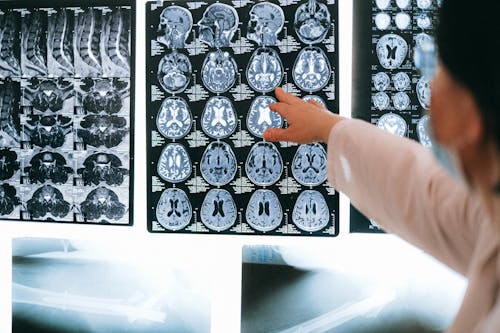
Impairment of executive functions is referred to as ‘executive dysfunction’, and it can severely impact the quality of life. Our executive functioning refers to the imperative cognitive skills we use when we multitask, pay attention to details, solve problems, organize our day, respond to stimuli and interpret events. Most of the brain activity associated with executive functioning occurs in the prefrontal cortex of the brain.
A self-employed entrepreneur might need organizational skills and executive functioning more than another person, but in general, we all need executive functioning.
Below, we’ll discuss executive dysfunction, and review what can be done about it.

What Causes Executive Dysfunction?
Impaired executive functioning or ‘executive dysfunction’ can be caused by a variety of factors. These include:
- Mental illnesses such as PTSD, generalized anxiety disorder and depression
- Autism
- ADHD
- Excessive stress
- Drug or alcohol abuse
- Sleep deprivation or sleep disorders
- Brain injury (frontal lobe of brain is damaged)
Executive Functioning and Mental Illness
A number of environmental factors can hinder the healthy development of executive functioning including childhood trauma, neglect, stress, drug or alcohol abuse, sleep deprivation and even severe boredom.
However, trauma can also cause a person with well-developed executive functioning skills to lose them. Leah Davidson, a speech-language pathologist explains,
“Due to the nature of many head injuries caused by accidents/injuries (car, bike, sports ), the frontal lobe is often affected. As a result, executive functioning is an area of challenge for many people who have suffered a brain injury – specifically in areas such as planning, organization, problem-solving, decision making, the flexibility of thought, idea generation, reasoning, goal setting, insight and awareness.”
And that loss of skills can be detrimental to mental health.
“Many people who suffer from a head injury are also later diagnosed with secondary issues such as anxiety, PTSD, [and] depression which further affect their executive function skills. Challenges with executive function skills impact all areas of life – relationships, communication, ability to work, learn etc.”
This is exactly why parents and teachers should not ignore the signs of executive dysfunction and wait for the struggling children to ‘catch up’; this will only lower their confidence and exacerbate the problem.
Additionally, degenerative diseases like Alzheimer’s disease and dementia, which target the prefrontal cortex and temporal lobes of the brain, can disrupt executive function. Common indicators of dementia are personality or behavioural changes and memory loss as the lobes affected shrink and a person’s ability to control their impulses and emotions diminishes.
Maintaining a healthy lifestyle through regular exercise, a healthy diet and plenty of sleep can help in preventing dementia along with staying mentally active; crossword puzzles, reading, learning new skills and trying new hobbies.

Can Anything Be Done About Executive Dysfunction?
Thanks to new technologies like fMRI scanners, scientists are learning a lot about brain health, including the remarkable way our brains can heal themselves. This means that it is possible to regain executive function skills that have been lost.
Jim Jackson, a neuropsychologist studying executive function in medical disorders at the Vanderbilt Medical Centre in Tennessee, has specifically done research into the effect of cognitive rehabilitation on executive dysfunction. “ Rehabilitation of executive dysfunction is a goal of many different therapies and some of them – like Goal Management Training or GMT – appear to quite effective in helping people improve their abilities to plan and organize their lives and meet their goals.
Other approaches to improving executive dysfunction are not about developing strategies but instead aim to fundamentally improve abilities by leveraging neuroplasticity – the brain’s ability to grow, reconstitute, and adapt. These approaches – exemplified by brain training and video game-based technologies – remain controversial in some circles but experts increasingly believe that they may offer hope to people with executive dysfunction by contributing to lasting improvements, especially in cognitive domains such as attention. Helping people improve their executive functioning remains a key priority because to an almost unique degree, deficits in executive functioning lead to major real-world problems – like problems driving, managing money, handling medication, using technology, and engaging effectively in social situations.”
Thankfully, parents and teachers are becoming more vigilant about spotting the signs of executive dysfunction as information becomes more widespread. With early intervention, Hannah says children born with low levels of executive function or whose level of functioning is slow to progress can be taught strategies to improve their ability to retain information and be better managers of their time, such as keeping a visual schedule or using timers to aid in transitions. “Educational therapists and executive function coaches can work with students and families to help scaffold learning and teach strategies for organization, time management, focus, and more that will benefit students’ long term learning and begin to create positive habits to compensate for those executive function struggles. Learners can become more confident and independent with support in the area of executive function skills.”
There isn’t one gene associated with executive dysfunction, but problems with executive function do tend to run in families and can be inherited. Further, certain developmental disorders have genetic markers that can be detected with a CircleDNA test. Use your DNA test to find out if you are genetically more likely to have ADHD, for example. This way, you can stay on top of your health and watch for signs of executive dysfunction.






